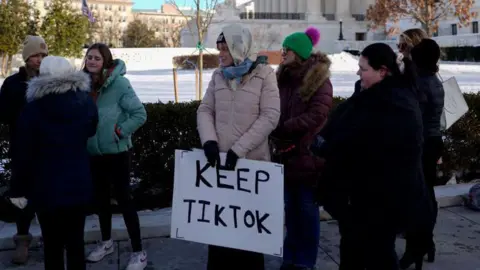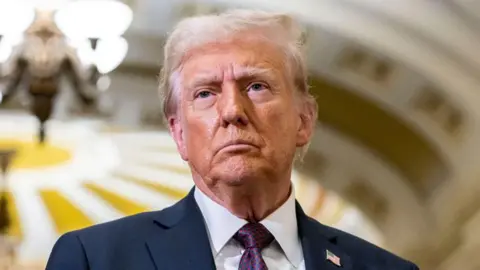TikTok will be banned in the U.S. on January 19 unless the Supreme Court accepts a last-minute legal appeal from its Chinese parent company, ByteDance, arguing that the ban is unconstitutional.
However, even if the Supreme Court upholds the decisions of lower courts and Congress and deems TikTok a national security threat, will it truly prevent Americans from using the platform?
Could users find ways to bypass the ban, or might President-elect Donald Trump, who opposes the law, intervene to prevent it from taking effect, even if the courts uphold it?
And regardless of TikTok’s fate, who stands to gain from the uncertainty surrounding its future?
Is it possible to continue using TikTok even if it’s banned?

What are other possible ways officials could ban TikTok?
There are other potential measures the government could take in the future. For example, after India banned TikTok in 2020, it instructed internet providers to block access to the app entirely.
Even if users resorted to using a VPN, TikTok could still find ways to determine whether a person is located in the U.S. and could display a message saying the app is unavailable in their country.
TikTok’s lawyer told the Supreme Court that the app will likely “go dark” in the U.S. unless the Court rules in its favor.
The complexity of the situation means even experts are unsure about the next steps.
However, he emphasized that the consequences would be clear for both users and the broader internet.
“It would totally legitimise the fragmentation of the internet along national or jurisdictional boundaries,” he said.
Will Trump still be able to intervene?

Trump has made it clear that he opposes the law, set to take effect the day before his return to office. He has asked the Supreme Court to delay its implementation while he seeks a “political solution.”
However, the method for achieving this remains uncertain. The Washington Post reported that one option is for Trump to sign an executive order suspending the law’s enforcement.
“I don’t want to get ahead of our executive orders, but we’re going to create the space to put that deal in place,” Waltz said.
Another option is for Trump to let the law stand but instruct the Department of Justice not to enforce it.
In this case, the government would inform Apple and Google that they won’t face consequences for continuing to offer TikTok access. While the law would technically remain, it would become ineffective.
Is it possible for a new buyer to emerge?

Which platforms could people turn to as an alternative?
TikTok claims 170 million U.S. users, spending an average of 51 minutes daily in 2024.
Facebook could also gain, though Enberg mentions it may face challenges due to controversial policy changes from CEO Mark Zuckerberg.
Twitch, popular for live streams, could also benefit, expanding beyond gaming content.
Other Chinese-owned platforms like Xiaohongshu (RedNote in the U.S.) are growing in the U.S. and the UK.
However, no app matches TikTok, especially its TikTok Shop feature, which generates significant revenue for U.S. creators.
